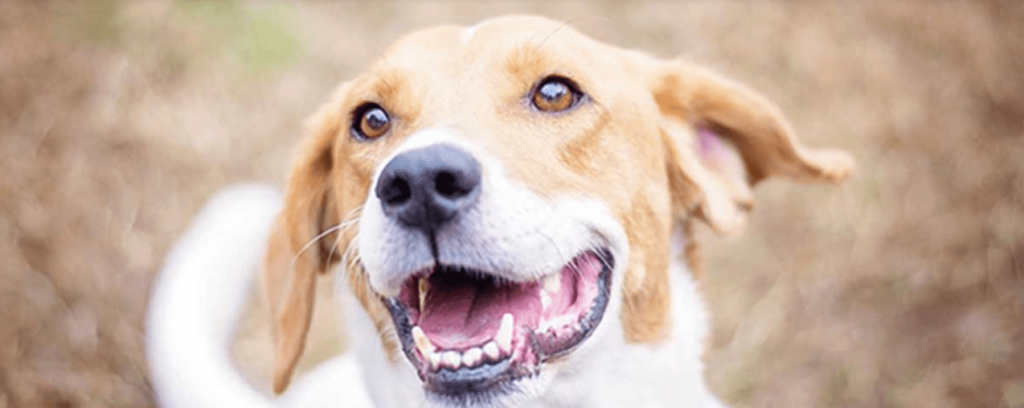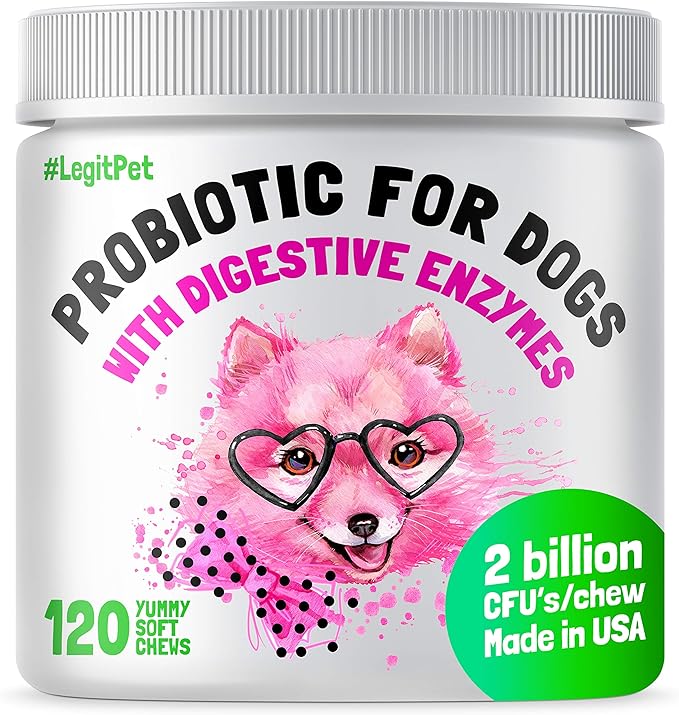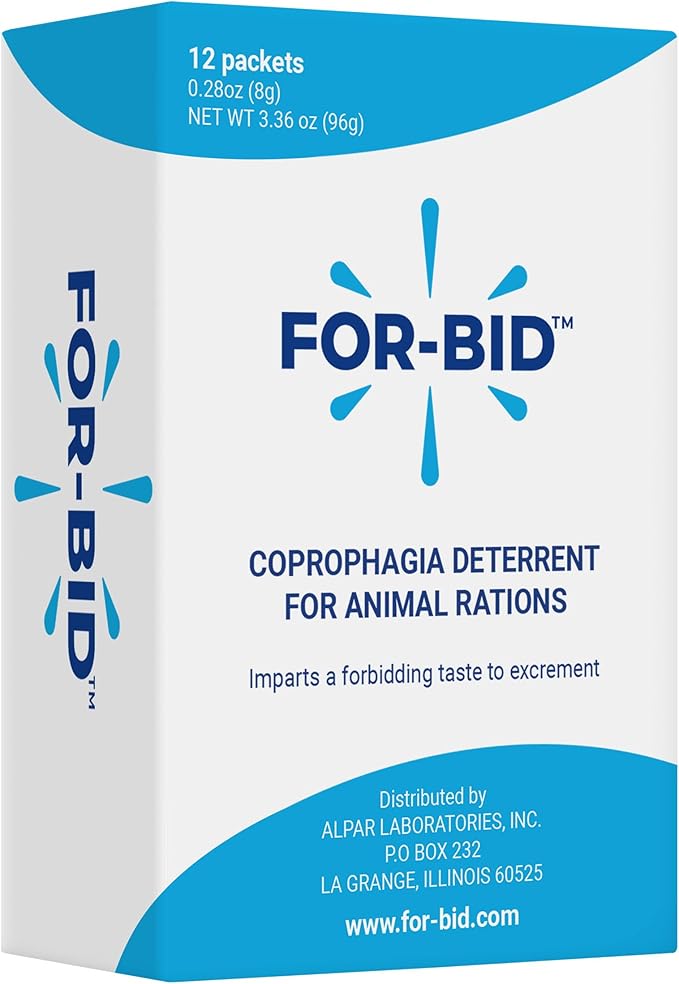
The main causes of coprophagia or feces eating in dogs! Coprophagia or feces eating in dogs means the act of eating feces, which can occur for a variety of reasons. This behavior may be caused by nutritional, environmental, or even behavioral factors. Some dogs may resort to this behavior due to a lack of nutrients in their diet. For example, a lack of digestive enzymes or minerals can stimulate the dog to seek out other sources of these substances, which may result in them eating their own or other animals’ feces.
Environmental factors can also play a role in the occurrence of coprophagia. Dogs that are kept in inappropriate environments or do not have constant access to cleanliness in their environment may resort to this behavior. This is especially common in dogs that live in small cages or confined environments.
What is coprophagia?
Coprophagia is an abnormal behavior in which dogs eat their own or other animals’ feces. This behavior, which is very worrying for many pet owners, can have a variety of causes, ranging from nutritional issues to behavioral and health problems.
Nutritional Causes of Coprophagia
One of the most common causes of coprophagia in dogs is nutritional deficiencies. Dogs that are not getting the nutrients they need through their diet may resort to eating their own or other animals’ feces to compensate for these deficiencies. This problem can occur due to improper or insufficient nutrition, poor food quality, or an imbalance in the diet.
Behavioral Factors Affecting Fecal Eating
Animal behaviorists believe that coprophagia may be an attention-seeking behavior. Dogs that engage in coprophagia for various reasons, such as loneliness, fatigue, or lack of physical and mental activity, are looking for attention from their owners. This behavior is especially common in dogs that have been raised with this behavior since childhood.
Environmental factors
Environmental factors also play an important role in causing or exacerbating coprophagia. For example, not keeping the dog’s living area clean, not having access to fresh water and food, or even a stressful environment can lead dogs to this behavior. Also, being around other dogs that perform this behavior may motivate dogs to imitate this behavior.
Medical and physiological reasons
In some cases, coprophagia can be caused by medical problems. Diseases such as diabetes, hypothyroidism, or digestive diseases can lead to this behavior. These diseases cause the dog’s body to incompletely absorb nutrients, and the dog turns to eating feces as a compensatory strategy.
The role of genetics in coprophagia
Some dog breeds are more prone to coprophagia due to their specific genetics. Breeds that are generally more sensitive or prone to behavioral problems may be more likely to suffer from this behavior. This behavior may be inherited from previous generations and is more pronounced in certain dogs.
Prevention and Treatment Strategies for Coprophagia
To prevent coprophagia in dogs, the underlying cause of this behavior must first be identified and treated. Some suggested methods include increasing the dog’s physical and mental activity, providing a proper and balanced diet, keeping the dog’s living area clean, and consulting a veterinarian to check for medical problems. If necessary, the use of nutritional supplements or changing the dog’s diet can also be effective. Pet Vaccination Schedule
Managing and Controlling Coprophagia Behavior
Managing and controlling this behavior requires perseverance and special attention from dog owners. Using positive reinforcement techniques, rewarding positive behaviors, and avoiding punishment can help reduce this behavior. Also, creating a regular routine for your dog’s daily feeding and activities can be effective in preventing coprophagia.

| Feature | Description |
|---|---|
| Digestive Support | Pumpkin & papaya base with probiotics for gut and immune health |
| Key Ingredient | DE111 probiotic (clinically studied for digestion & immunity) |
| Probiotic Blend | 6-strain powder blend for gut flora, reduces diarrhea, gas, bloating |
| Health Benefits | Supports gut flora, relieves gastric issues, boosts immunity |
| Form & Use | Tasty soft chews for all dog breeds |

| Feature | Description |
|---|---|
| Core Function | Probiotic chews for digestive health & coprophagia deterrent |
| Digestive Support | 3 billion CFUs, enzymes & probiotics for gas, bloating, diarrhea |
| Immune & Allergy | Supports immune system, helps with hot spots and itching |
| Key Ingredients | 5 probiotic strains including Lactobacillus species |
| Quality | Made in USA with sustainably sourced ingredients |
7 Causes of Coprophagia or Fecal Eating in Dogs
- Nutritional Deficiencies
One of the main reasons that can cause fecal eating in dogs is nutritional deficiencies. Dogs need certain nutrients, vitamins, and minerals to maintain their health and optimal body function. When a dog’s diet does not contain enough of these substances, his body may begin to search for alternative sources. One of these sources can be feces, because feces contain food residues and some undigested nutrients.
In some cases, dogs that are home-fed may not be getting all of their nutritional needs, especially if their diet is not completely balanced. Also, dogs that eat poor or unhealthy diets are more prone to this behavior. For example, a vitamin B deficiency, or a lack of certain digestive enzymes, can be one of the causes of poop eating.
To prevent this problem, it is essential to review your dog’s diet and make sure that he is getting all the nutrients he needs for his health. Using high-quality, balanced foods and sometimes consulting with a veterinarian to determine the specific nutritional needs of your dog can help prevent poop eating. Also, if necessary, specific nutritional supplements can be used to meet the dog’s nutritional needs to properly compensate for deficiencies. - Digestive Problems
Digestive problems can also be one of the main causes of poop eating in dogs. If your dog has digestive problems, they may not be able to digest their food properly and some of the nutrients will be excreted through their feces. In this situation, your dog may see their feces as a source of replenishment for these lost nutrients and start eating them.
For example, conditions such as pancreatic insufficiency, in which the body is unable to produce enough enzymes to digest food, can cause this behavior. Also, conditions such as malabsorption syndrome, in which the body is unable to fully absorb nutrients from food, can lead to feces eating. In this case, the feces contain partially digested food that the dog may see as a source of food.
To diagnose digestive problems, veterinary tests and a detailed examination of your dog’s digestive system are usually required. Your veterinarian may use stool, blood, and other diagnostic procedures to identify the problem. Treatment for these problems usually involves changing the diet and sometimes taking medications or supplements that help improve the digestive process and can prevent the stool eating behavior from continuing. - Attention seeking
Another common reason for stool eating in dogs is attention seeking. Dogs are social animals and need interaction with their owners. In some cases, if a dog feels that they are not getting enough attention from their owner, they may resort to unusual behaviors such as stool eating to get their owner’s attention. Even if this attention is negative, such as scolding or punishment, the dog may continue this behavior because attention, whether positive or negative, is better for them than indifference.
This type of behavior is most often seen in dogs that are left alone for long periods of time or whose owners do not spend enough time playing and interacting with them. Dogs are animals that need mental and physical stimulation, and when these needs are not met, they may resort to unpleasant behaviors such as stool eating.
To combat this behavior, dog owners need to spend more time with their pet and meet its social and physical needs through play, mental exercise, and regular walks. Paying positive attention to the dog’s good behaviors and ignoring negative behaviors can solve this problem over time. Also, if necessary, you can seek help from a trainer or animal behaviorist to correct this behavior.
- Stress and Anxiety
Stress and anxiety are also important causes of poop eating in dogs. Like humans, dogs are sensitive to environmental changes and stressful situations and may react to these situations by engaging in unusual behaviors such as poop eating. Factors such as moving to a new home, introducing a new animal or person to the home, or even separation from the owner can cause stress in dogs.
Dogs with separation anxiety, especially when left alone, may engage in this behavior. This anxiety can make the dog feel insecure and lead to self-destructive or abnormal behaviors. Poop eating in this case may be done as a way to relieve tension or stress.
To help dogs who are stressed, owners should try to provide a calm and stable environment for them. Performing relaxing exercises such as brain games, increasing physical activity, and using relaxation techniques can help reduce the dog’s stress. In more severe cases, your vet may recommend sedatives or behavioral counseling to help control your dog’s anxiety and stop the poop-eating behavior. - Mimicking Other Dogs
Mimicking other dogs can also be a cause of poop-eating. Dogs are social animals and often imitate the behaviors of other dogs. If your dog lives in an environment where other dogs are present and one of them is poop-eating, your dog may also imitate this behavior.
This behavior is especially common in young dogs and puppies, who engage in this behavior out of curiosity and imitation of older dogs or other members of their pack. Dogs learn by observation, and poop-eating is one behavior that may be quickly imitated by other dogs, even if the dog does not have the tendency to do so on its own.
To prevent this problem, if you have multiple dogs in your home or your dog interacts with other dogs, you should pay attention to the behavior of the other dogs and take quick action to correct the behavior if you see one of them eating poop. Also, reinforcing positive behaviors in the dog and behavioral training can help prevent copying this behavior. - Curiosity and Exploration
Curiosity and exploration are other reasons for poop eating, especially in puppies. Due to the natural instinct to explore their surroundings, puppies may try poop as a new or unknown object. At this stage of life, dogs tend to examine everything with their mouths, and poop can also be considered as part of this natural process.
This behavior usually decreases over time and as the puppy grows, but it can be a cause for concern if this behavior becomes a habit. It is important for puppy owners to monitor their behavior closely at this stage of their life and try to prevent their puppy from coming into contact with feces by creating a safe and appropriate environment.
Behavioral training and positive reinforcement can also help stop this behavior. Providing appropriate toys and treats to keep puppies entertained and teaching commands such as leave it can help prevent poop eating at this stage. It is also important for puppy owners to pay special attention to the cleanliness of their environment. - Cleaning the Environment
Some dogs instinctively want to keep their living environment clean, and this behavior may lead to poop eating. This tendency is especially seen in nursing mothers who keep their puppies clean. Mothers may eat their puppies’ feces to avoid attracting the attention of predators or for hygiene reasons. This behavior is completely normal and usually stops after the weaning period.
However, if this behavior continues after the puppyhood period, it can become a concern and need to be corrected. Dogs that turn to eating their own or other animals’ feces for health reasons may continue to do so due to lack of environmental management or poor habits.
To prevent this behavior, owners should keep their dogs’ living environment clean and hygienic. Also, using behavioral training can help correct this habit. Reviewing their diet and ensuring they are getting enough nutrients can also help reduce this behavior, as dogs may also turn to eating feces for nutritional reasons.

| Feature | Description |
|---|---|
| Primary Function | • Stops dogs from eating their own stool (coprophagia). • Ensures a cleaner, more hygienic environment. |
| Health Benefits | • Supports digestive health with probiotics & enzymes. • Improves nutrient absorption. • Promotes a healthy gut. |
| Formula | • Vet-formulated with a blend of natural, premium ingredients. |
| Taste & Use | • Delicious & easy to administer chews. • Simply add to your dog’s daily routine. |
| Quality & Safety | • Made in the USA with high-quality, natural ingredients. • Backed by rigorous testing and GMP standards. |

| Feature | Description |
|---|---|
| Proven Trust & History | • Vet-recommended for over 50 years. • A trusted, reliable solution that works from the inside out. |
| How It Works | • Once digested, it makes the pet’s own stool taste unpleasant. • Effectively helps curb the unwanted habit of stool eating. |
| Key Advantage | • Does not alter the taste or smell of the pet’s food. • Ideal for picky eaters. |
| Usage & Administration | • Extremely easy to use – simply sprinkle the powder onto food. • No pills or complicated steps. • Designed for easy daily use. |
| Quality & Origin | • Proudly made in the USA. • Uses high-quality, globally sourced ingredients. |


